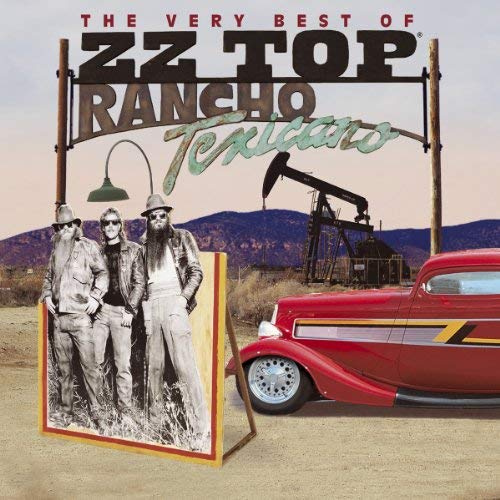Of the American stadium filling acts of the 70s, few have managed to continually extend their career like ZZ Top. These days KISS are a pale shadow of what they once were, Aerosmith succumbed to substances before a Lazarine comeback in the late 80s and seem to spend most of their time arguing with each other these days, and Rush have had more temporary splits and comebacks than your average twiddly rock band. While ZZ Top have had their elongated periods without a release, they have remained a going concern for coming up to five decades, and their only personnel change has been them dismissing their long-time manager and co-producer a few years back.
Starting out as a pretty bog-standard blues-rock act, ZZ Top seemingly eschewed the extended jams of their Southern Rock brethren and concentrated on recording a more manageable and digestible type of rock music. After a pair of solid albums that didn’t quite ignite the public interest, they polished their craft until they had a sizeable hit with their Tres Hombres album. This was seemingly the turning point for ZZ Top, as the album and its attendant single, the splendid “La Grange” hurled them into the big leagues. The follow up Fandango solidified their position, as did the accompanying radio-friendly, but politically incorrect, “Tush”. While they’ve never been as low-brow as AC/DC, political correctness has never been ZZ Top’s strong suit.
In retrospect the mid to late 70s were the glory days of ZZ Top. Unhampered by being pigeonholed in a musical movement, they ploughed their own unique furrow, becoming a killer live act (check out the smoking rendition of “Thunderbird” on the first disc) and releasing the raw-rocking Degüello and generally growing their beards until they reached epic proportions prior to the release of El Loco.
Then of course came the band’s most divisive period. The early 80s brought synthetic production, MTV, and a much changed musical landscape. Where most classic rock bands crow-barred the synthetic production methods into their sound with various levels of success (Yes and Rush enjoyed sizeable hits, most others didn’t), ZZ Top wholly embraced the new plastic production ethos on 1983’s Eliminator, and enjoyed the biggest global hits of their career with “Gimme All Your Lovin’”, “Legs” and “Sharp Dressed Man”. This new ZZ Top sound was unashamedly contemporary, the accompanying videos largely ignored the band and focused on scantily clad ladies and shiny cars, thus scoring big on MTV, introducing the band to a whole new generation of fans. While Billy F. Gibbons’ guitar work still took centre stage, the rhythm section of Dusty Hill and Frank Beard were lost under a thick lacquer of synthetic rhythm sounds, and much of what had made ZZ Top the huge success it was, was being obscured in favour of commercial acceptance.
Perhaps even more controversial than their change in musical direction was the band’s decision to remix the majority of their previous albums (Degüello and El Loco dodging the bullet) with the same synthetic production methods that they had embraced on Eliminator, thus denying their fans the chance to purchase their old albums on CD in the original unadulterated mixes. As successful as their new sound was, this decision alienated a lot of their old fans who didn’t like their new sound and perhaps prevented potential new fans (and I include myself among these) from fully grasping what a great rock band ZZ Top had been at their peak.
A huge mega-bucks record deal in the early 90s coincided with a slow return to ZZ Top’s more organic-sounding roots, but by this time their album sales were waning and by the turn of the century the band seemed to realise their previous mistakes and the original mixes started being used on compilations and sparkling re-releases of Tres Hombres and Fandango. Sadly the rest of the band’s 70s albums remained unavailable in their original mixes, until they were all released in a box set a few years ago.
As Rancho Texicano: The Very Best of ZZ Top covers the band’s career from the beginning and ends just before their label-change in the 90s, it accurately reflects their career during that period, but sadly does not conclude with the band finding redemption by returning to their more stripped back and organic sound. Instead it shows how great a rock and roll band were in their early days, how they successfully embraced new technology in the 80s, but found themselves in a creative cul-de-sac when those same synthetic production methods neutered their sound.
For those of you who have only heard ZZ Top’s big hits of the 80s, I would encourage you to check out this compilation, as you may be surprised how brilliant they used to be before it was all girls, cars and MTV.













No Comment